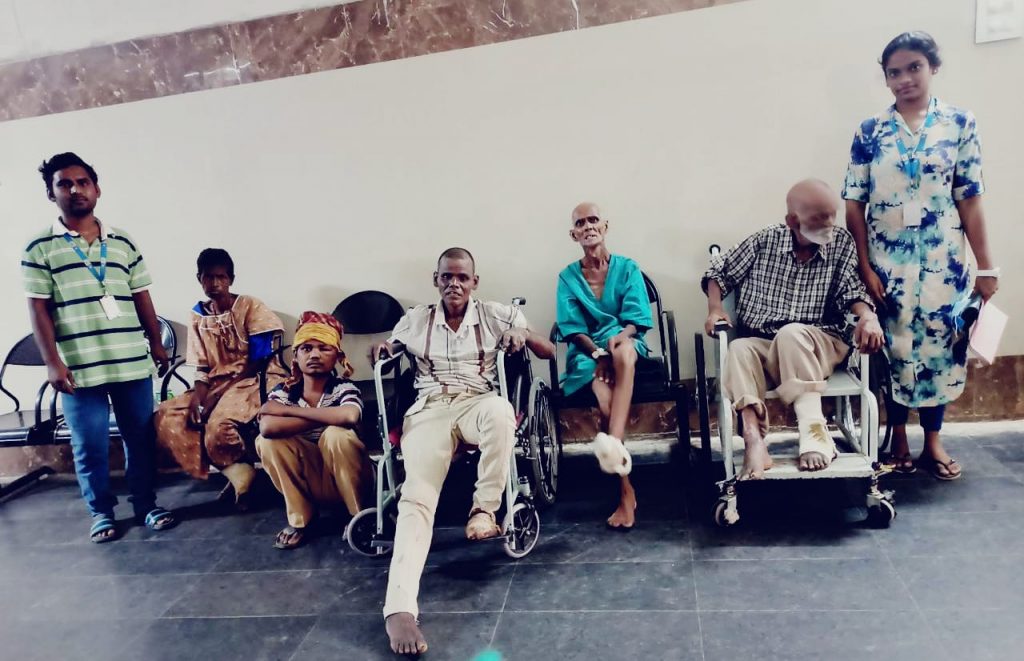 “Every time you do a good deed you shine the light a little farther into the dark. And the thing is, when you’re gone, that light is going to keep shining on, pushing the shadows back.”
“Every time you do a good deed you shine the light a little farther into the dark. And the thing is, when you’re gone, that light is going to keep shining on, pushing the shadows back.”
– Charles de Lint
India is known for adhering to its traditional values and core ethics. Reverence for one’s parents is deeply embedded in Indian families since childhood. Individuals see it as their moral duty to look after their parents and the elderly citizens. But in the last few decades, there have been various shortcomings reported when it comes to elderly care. As a consequence of social upgradation and evolving modern lifestyle, our society has lately witnessed a massive transformation in family structures. Mushrooming of nuclear families, especially in urban areas, has led to an increase in the demand for old age homes.
The faith and legacy left by his father and the grief arising from Ganesh’s death inspired George to set up an NGO – Good Samaritans India – in March 2011, to give justice to the weak and maintain the rights of the destitute. The NGO follows this mantra: “Give justice to the weak and the fatherless, maintain the right of the afflicted and destitute. Everyone wants to be loved, irrespective of their caste, creed, or colour of humanity.”
 Seeing this, A.I. George Rakesh Babu opened a free clinic and started helping his patients by taking them to the hospital. He initiated this in 2008. He rented a small room and took care of sick patients. The clinic slowly turned into a welfare centre and then into a destitute home.
Seeing this, A.I. George Rakesh Babu opened a free clinic and started helping his patients by taking them to the hospital. He initiated this in 2008. He rented a small room and took care of sick patients. The clinic slowly turned into a welfare centre and then into a destitute home.
Let us look back at the circumstances leading to this clinic becoming a fully-fledged destitute home. Tamilian priest, Ganesh Prabhu, dedicated his entire life to social service. Despite numerous challenges and absolutely no support from family or relatives, he strived to give over 60 orphans a quality life. Dedicating his entire life to the cause of orphans, Ganesh Prabhu was humiliated in the last years of his life and even failed to get a dignified burial. The untimely and shocking circumstances leading to his death and burial shook George to the core and left a lasting impact on him. It changed his perspective towards life. He believes that every individual has the right to live their lives to the fullest and die in dignity. The faith and legacy left by his father and the grief arising from Ganesh’s death inspired George to set up an NGO – Good Samaritans India – in March 2011, to give justice to the weak and maintain the rights of the destitute. The NGO follows this mantra: “Give justice to the weak and the fatherless, maintain the right of the afflicted and destitute. Everyone wants to be loved, irrespective of their caste, creed, or colour of humanity.”
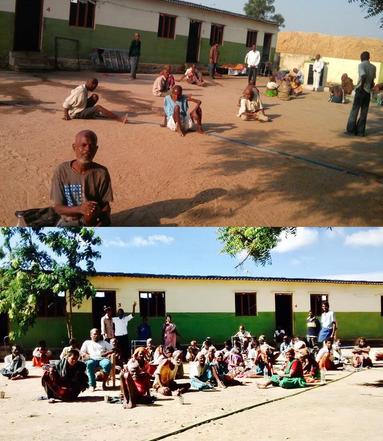 The shelter home provides a roof for homeless senior citizens abandoned by their families and for those who cannot afford even the bare necessities of life.
The shelter home provides a roof for homeless senior citizens abandoned by their families and for those who cannot afford even the bare necessities of life.
The very words – Old Age Homes – could be daunting and frightening to many elderly citizens as they give them a feeling of loneliness, detachment, abandonment, reduced care and safety. Breaking all these stereotypes and redefining the term, Good Samaritans India continuously strive to turn the tables and  make a difference in the lives of the elderly. Security, health, shelter, food, dignity, happiness, peace and harmony define a senior citizen’s lifestyle at Good Samaritans India. And these are what they crave in their twilight years.
make a difference in the lives of the elderly. Security, health, shelter, food, dignity, happiness, peace and harmony define a senior citizen’s lifestyle at Good Samaritans India. And these are what they crave in their twilight years.
The NGO is manned by medically-trained volunteers dedicated to ensuring the safety and good health of senior citizens. They are provided top-notch living facilities with various rehabilitation programmes and medical treatments.
During his rescue operations, George Rakesh Babu discovered that the feeling of separation still prevails in many senior citizens, and this horrifies them. Most citizens are either abandoned due to their old age or physical disability, which the family feels demands way too much financial resources. He also raises a major concern that age should not be a constraint for the elderly. All they need is a home, a mattress to sleep, dignity to live and die in peace.
Treatments Offered
Occupational Rehabilitation: This is for victims who have lost their skills due to a paralytic stroke or an unfortunate accident.
Physical Rehabilitation: The programme is for patients who have suffered bone and muscle injuries. Technological treatments strengthen their muscles and improve their posture.
Aquatic Rehabilitation: This is a new yet successful trend in treating arthritis and joint problems. It also helps in providing flexibility and mobility to the leg muscles.
Cognitive Rehabilitation: A neuropsychological approach is used to treat patients who suffer from brain injuries. They strike at the moral, social and emotional aspects of the brain to help patients get back to their normal life before the injury.
Behavioural Modification: Patients are treated and helped to focus on controlling their behaviour.
Pharmaceutical Treatment: This is used as a complementary treatment to address the primary condition.
Cognitive Therapy: Patients undergo this therapy to help them focus on advancing their conscious mental process.
Holistic Treatment: This treatment focuses on the individual as a whole.
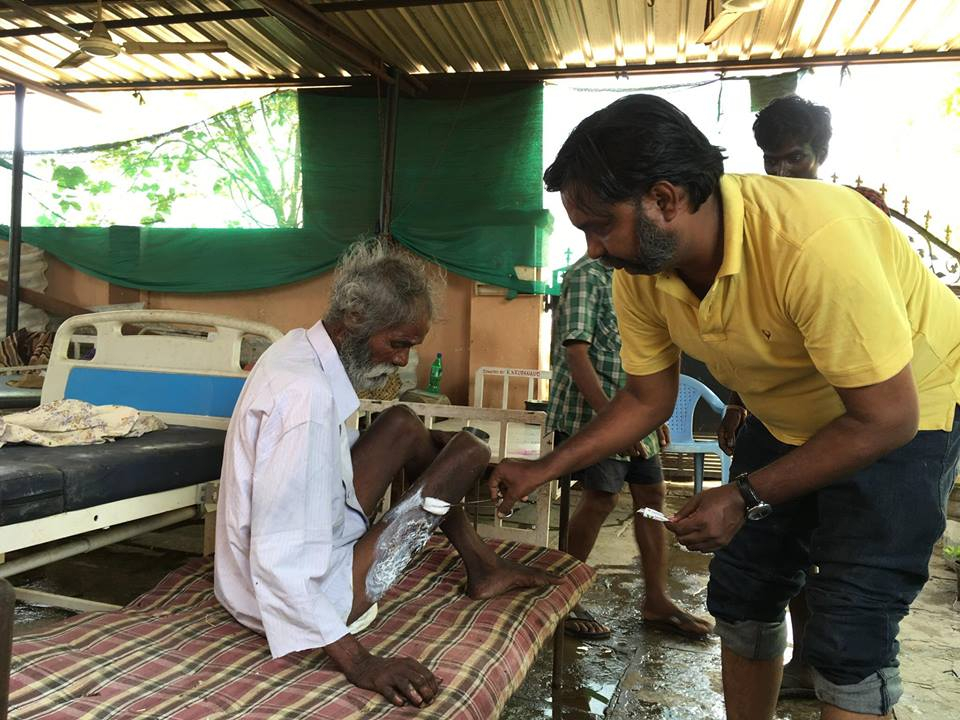
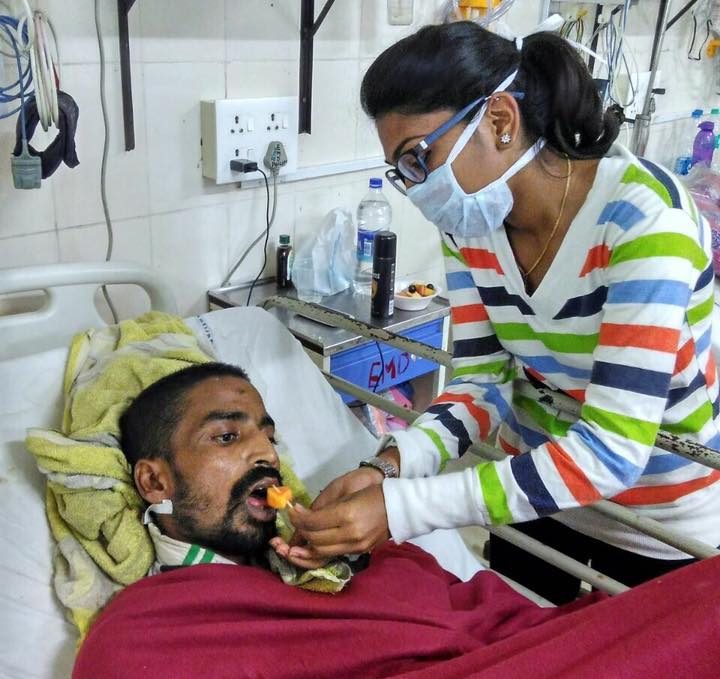
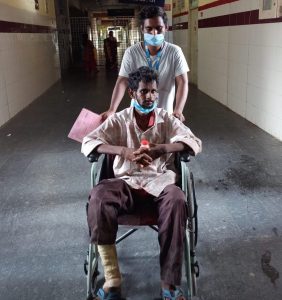
George believes that senior citizens are not a burden to society. All they need is care and compassion in their golden, sunset years.
Moving forward with his journey of serving humanity, George shares an emotional incident from one of his rescue operations. An elderly woman named Shanta was neglected by her only son as she was a cancer patient. George Rakesh Babu and his team rescued Shanta and sheltered and fed her. But due to linguistic barriers, they were unable to communicate and identify her serious medical condition. The team used all their resources, and after searching for a month, they were able to get in touch with Shanta’s brother. But before he could take her home, Shanta, unfortunately, passed away. She craved to see her only son till her last breath. George felt a deep sense of helplessness just as he did when the priest, Ganesh Prabhu, died. Shanta’s remorse of not being able to unite with her son before she died impacted George’s initiative so significantly that he amplified his rescue operation with full zeal with the only intention of providing food, shelter and care to the needy and serving them with the best medical treatments.
During his rescue operations, George Rakesh Babu discovered that the feeling of separation still prevails in many senior citizens, and this horrifies them. Most citizens are either abandoned due to their old age or physical disability, which the family feels demands way too much financial resources. He also raises a major concern that age should not be a constraint for the elderly. All they need is a home, a mattress to sleep, dignity to live and die in peace.
Good Samaritans India is the next home for the homeless elderly and destitute who are considered an undeserving part of society. To date, they have successfully rescued more than 4000 destitute and reunited 1500+ migrants with their families. They have three destitute homes, with its main branch operating from Hyderabad and two others in Jangaon and Warangal, Telangana.
Ever since its inception, the NGO has made a positive impact on those that needed tender, loving care. It believes in seeking a world of hope and social justice, where all individuals live a life of dignity and security. It has been making a difference by reaching out to more people in Hyderabad and changing society’s perspective on the elderly and destitute.
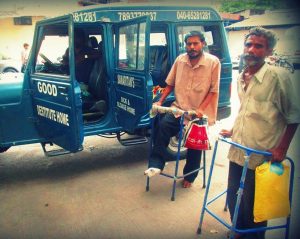
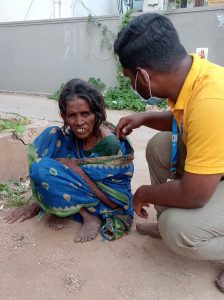
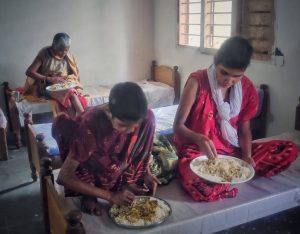
Good Samaritans India not only shelters the elderly but uplift the unprivileged and mentally unstable individuals. George shares another incident when he rescued an old woman who had left her house after the sudden death of her third son. She went missing for 12 years. One day, local Hyderabadis approached the NGO and requested them to rescue a woman who was wandering around their residential area. It was difficult for them to communicate with the lady as she was speaking in Odia, the language spoken by the people of Odisha. George and his team immediately started a search mission for the lady with the help of a local news channel and on various social media platforms. The Rani Ghat Police Station was able to trace her family in Odisha and helped reunite them.
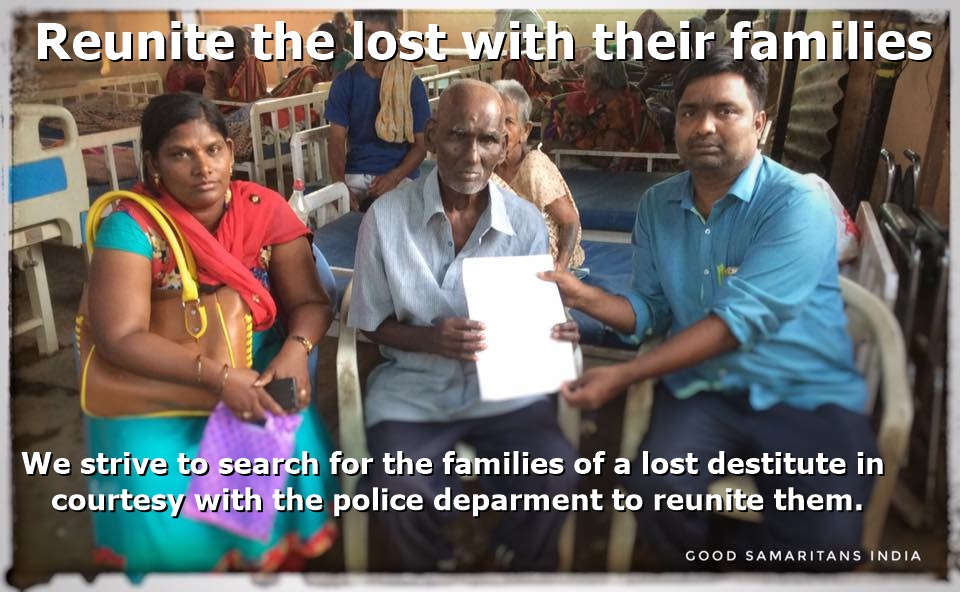
Koteshwar Amma, a 77-year-old who was rescued from Hyderabad said, “I was abandoned by my family due to my acute illness and high medical cost. I kept wandering the streets for three days. A passerby saw my pathetic state and contacted the nearest police station who then contacted Good Samaritans India. Within a short period, the NGO volunteers came to my rescue. They took me to their shelter home and provided me with food and clothing. After providing first aid, the volunteers began asking me about my family. At first, I was hesitant, but I then shared the actual reason for my pathetic state. Mr George and some volunteers took me to my home and talked to my son. He was not ready to take me under his care. With no other option left, he took me to his shelter home and made necessary arrangements. I receive the love, respect and care I have been longing for. I am grateful to Mr George and his team, and I bless them for what they did for me and those like me.”
George Prabhu adds that most people have families and friends who will be there through thick and thin, but these people have no one to rely on. He also raises concerns that when a person becomes old, he is considered useless. A pension of merely Rs 1000 is not enough to survive at this age. All they need is a shelter, a home where they are treated with dignity, a mattress to sleep and die in peace. He also made a mention that we have all lived our lives the way we wanted. A time comes when we should dedicate ourselves to serve those in need.
One of the volunteers from Good Samaritans India, Manish Kumar, shares his experience working with the NGO: “I have been a part of this NGO for more than six years now. During this period, I have been taking care of the needy and the elderly. I have also seen deep sorrow etched on their faces as their families have abandoned them. Good Samaritans India is doing a unique service of taking care of senior citizens and providing them with a life of dignity.”
The NGO has its challenges. It requires funds and donations to sustain its work. George Rakesh Babu requests people and renowned organisations to donate generously to help them continue their mission in serving the abandoned elderly. He says, “The NGO receives donations from kind-hearted people and through fundraising programmes. We went through a very tough time during the lockdown as we did not receive any kind of financial help. I used my savings to sustain the NGO.”
George is grateful to the State Government and officials, including the District Welfare Office, Welfare Department of Senior Citizens and the Disabled, City Civil Court and the State Human Rights Commission for lending a helping hand to the NGO by assisting them with all legal matters and permissions.
George Prabhu adds that most people have families and friends who will be there through thick and thin, but these people have no one to rely on. He also raises concerns that when a person becomes old, he is considered useless. A pension of merely Rs 1000 is not enough to survive at this age. All they need is a shelter, a home where they are treated with dignity, a mattress to sleep and die in peace. He also made a mention that we have all lived our lives the way we wanted. A time comes when we should dedicate ourselves to serve those in need. He urges the government and citizens to consider this matter and help NGOs like his by donating and funding so they can continue their good work of providing affection and care to the elderly.
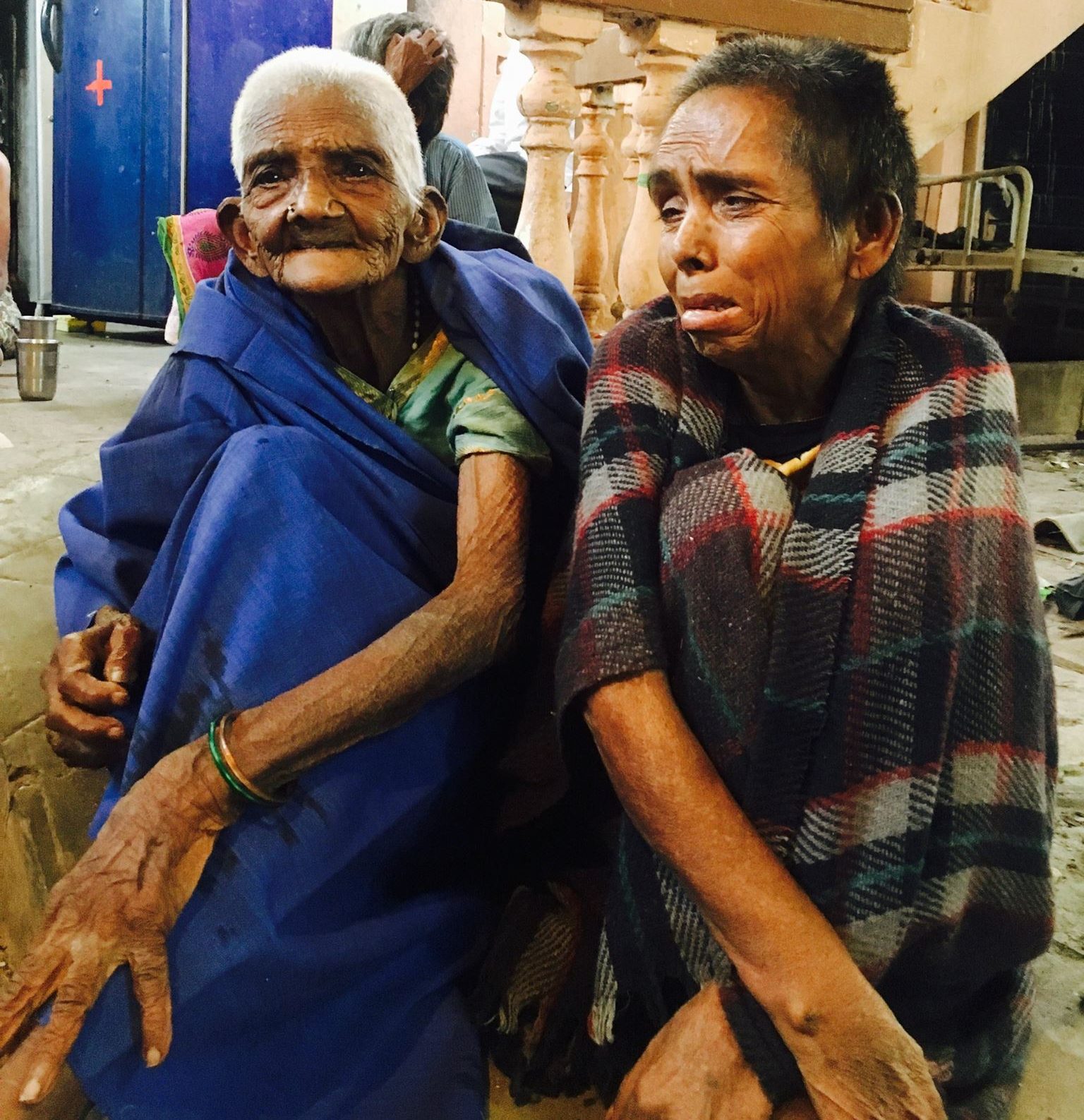

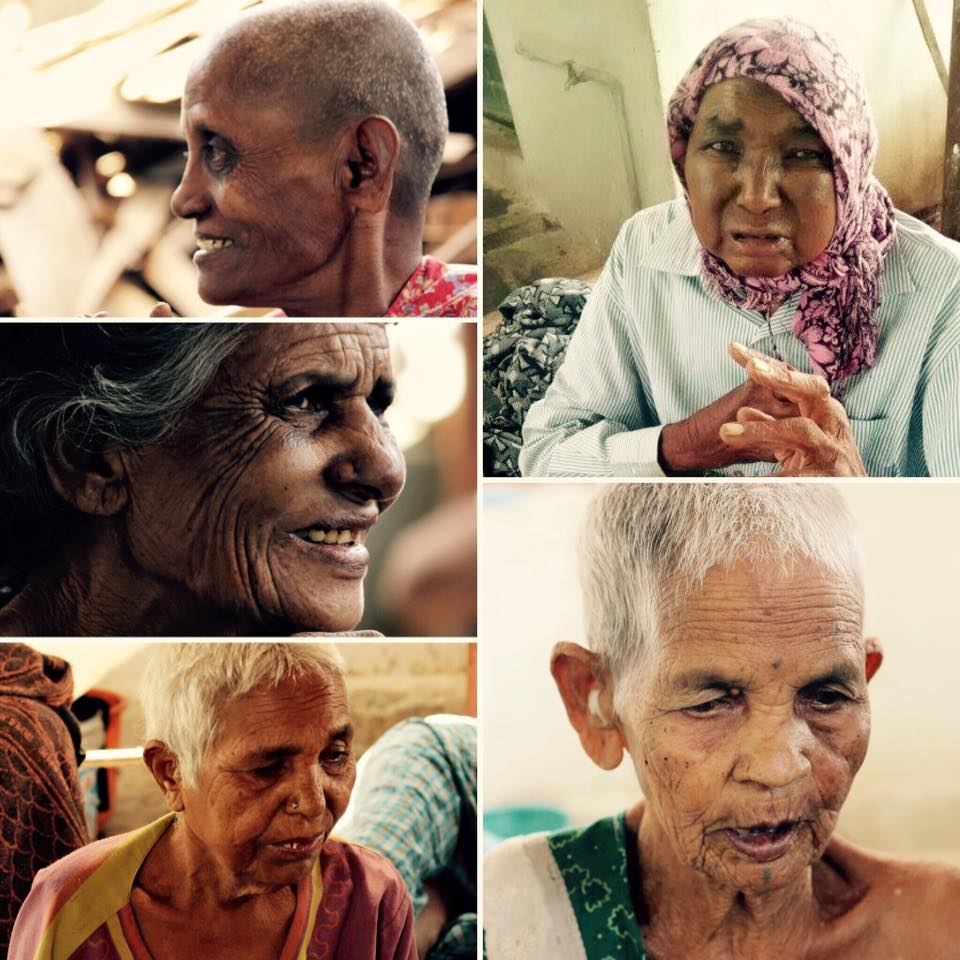
Good Samaritans India has now become a place of solace for the poor. It has set a new norm in rehabilitating the homeless elderly, even amongst the most traditional factions of the nation’s population. The NGO highlights compassion for the neglected needy and aces in preserving the dignity and respect in the golden years of the old, aged population.
George Rakesh Babu is an inspiration to today’s youth-oriented society where modernisation has overlapped the cultural ethos of the traditional Indian belief. He is living proof that though there are many hardships and challenges in life, yet, as Charles de Lint inspiring quote says, “Every time you do a good deed you shine the light a little farther into the dark. And the thing is, when you’re gone, that light is going to keep shining on, pushing the shadows back.”

